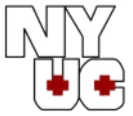In a city as tirelessly energetic as New York, where the pace of work never really lets up, companies frequently balance productivity demands with staff welfare. Among deadlines, traffic, and diagonal commutes, Occupational Health Services are beneficial and necessary. Far from being just legal forms to fill, these services are the foundation of a healthy, productive workforce.
As regulatory oversight increases and workplace risks adapt with technology and size, overlooking employee health is a dangerous misstep. Putting the right occupational health services first guarantees compliance and builds a corporate culture of safety, trust, and performance.
Below are the top 5 Occupational Health Services that every NYC-based company must put at the top of their operations.
1. Comprehensive Pre-Employment Health Screenings
First impressions count even in job hiring. Before hiring, companies must ensure that applicants are physically and psychologically fit for the jobs they will be required to perform. Pre-employment medical tests are vital in detecting early health risks, confirming medical history, and ensuring compatibility with job-related demands.
Why it matters:
- Eliminates future absenteeism due to chronic or hidden illnesses.
- Ensures workplace safety by positioning fit workers in physically demanding jobs.
- Mitigates the risk of on-the-job injury claims from pre-existing conditions.
- Screenings usually involve:
- Physical fitness tests
- Vision and hearing screenings
- Drug and alcohol screening
- Immunization status checks
2. Routine On-Site Medical Surveillance
Workers are exposed to high-risk work environments in industries like construction, manufacturing, and shipping all pillars of NYC's infrastructure. Regular medical surveillance programs assist in identifying occupational diseases at their inception and in compliance with OSHA regulations.
Major elements:
Periodic medical checks according to job hazard category
Respiratory function screening for workers with airborne contaminant exposures
Audiometric examination for workers working in noise-dense areas
Hazardous substance exposure monitoring, such as asbestos or lead
Enterprise benefits:
Detection of work-related health conditions earlier
Decreased long-term disability claims
Better workforce morale and retention
3. Ergonomic Risk Assessment and Injury Prevention
In a time when so many New Yorkers spend extended hours at their desks or on their feet, musculoskeletal disorders are a constant looming threat. Ergonomic evaluations too often underappreciated are a wise health investment.
What it entails:
- Analysis of workstations for posture, equipment positioning, and screen level
- Adaptive furniture or workstation redesign recommendations
- Safe lifting technique and posture correction training sessions
Why invest in this?
- Reduces repetitive strain injuries
- Boosts overall productivity by minimizing fatigue
- Fosters a culture of comfort and awareness
4. Mental Health and Stress Management Services
The psychological toll of urban professional life is usually unseen but profoundly destructive. High-stress jobs, lengthy commutes, and constant digital connectedness fuel anxiety, burnout, and depression. NYC companies cannot afford to view mental health as an afterthought.
- Key offerings:
Access to licensed workplace therapists or EAP (Employee Assistance Program) counselors
Stress management workshops and resilience training
Crisis response programs and hotlines
- Outcomes businesses will notice:
Increased employee morale and satisfaction
Reduction of stress-related absenteeism
Improved team relationships and communication
5. Occupational Injury and Illness Management Programs
Even with the best intentions, injuries can happen in the workplace. An organized response program decides if such incidents spin out of control into legal and monetary liabilities or get resolved quickly and equitably.
- Important elements:
On-site immediate first aid response
Documentation and reporting protocols for injury
Return-to-work evaluations and transitional duty programs
Coordination with workers' compensation policies and medical providers
- Why it's irreplaceable:
Ensures legal compliance and limits exposure to litigation
Reduces recovery time and maintains skilled labor
Reinforces the company's dedication to employee well-being
Final Thoughts
In New York City, where companies compete for market position and staff, Occupational Health Services provide an unspoken yet powerful edge. They don't just keep from causing harm, they send the message of responsibility, bring in responsible workers, and build lasting sustainability.
From pre-hire screenings to mental health services, these products create an invisible barrier around the most valuable corporate asset: human capital. Any company looking to survive and thrive in the Big Apple must approach occupational health as a regulatory, not a strategic imperative.
So ask yourself is your company just compliant, or is it committed?

